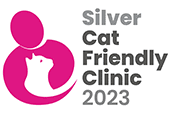Great Danes may be big but they are a very friendly breed and have a lovely disposition. Due to this they are known as the “Gentle Giant”. With proper training they are loving, affectionate and are patient around children. They love everyone and need to be around people. Big as they are, Great Danes make very good house dogs. Admittedly they will take up all the space infront of the fireplace and you probably won’t get to sit on the sofa or comfy armchair ever again, but this is a small price to pay for having a big, loving, loyal, dependable dog.
All dogs love a walk and Great Danes are no different, however, you need to be careful not to over exercise them especially when they are young. Puppies do not stay small for long and grow very quickly which puts them at risk of joint and bone problems. Great Dane pups will have a lot of natural energy and owners have mentioned they take steps to minimise activity while their dog is growing. We would not recommend taking your Great Dane pup jogging or running until it is at least 12-18 months old
Like a lot of big dogs, Great Danes could have certain health issues such as Panosteitis-Pano, Cardiomyopathy, Hypothyroidism and Hip Dysplasia.
Panostetis
This is a painful condition that occurs when Great Danes are pups and are growing rapidly. The symptoms are usually periods of lameness lasting 2-3 weeks and it may shift from leg to leg. Also, your dog may not be keen on exercise or going for walks due to the discomfort. Any lameness in a growing Dane is worth getting vet checked.
Cardiomyopathy
There are three types of Cardiomyopathy, but Dilated Cardiomyopathy is most common in Great Danes and can be deadly. The chambers of the heart become enlarged and the thin wall of the affected chamber stretches and stops the heart from working properly. As the heart is not performing as it should, it works harder to pump the blood around the body. Also, fluid will build up in the lungs and abdomen. If Cardiomyopathy is suspected, an x-ray will be taken of your dog’s chest to assess whether there is fluid in the lungs and to look at the size of the heart. An ultrasound will be taken to assess cardiac chamber size and function. The dog may also be referred to a canine cardiologist for tests. Some of the symptoms to look out for are an unexpected cough or it sounds like the dog is trying to clear its throat, trouble breathing, lack of appetite and lethargy or collapsing. If you suspect anything contact your vet as soon as possible.
Hypothyroidism
A lack of thyroid hormone in the body is called hypothyroidism. Often the symptoms of a lack of thyroid hormone are not very obvious. The problem is usually seen in middle-aged or older dogs and quite often the symptoms come on so slowly that owners simply think their dog is just getting a bit old. Dogs tend to slow down a bit and be less keen to run around. Additionally, their appetite is usually normal but they may put on weight . Other common changes associated with the disease are bald patches on the body, other skin problems, or feeling the cold more than normal.There is no treatment which will make your dog’s thyroid gland start to work normally again. However, it is very simple to replace the missing hormone by giving hormone replacement tablets. These tablets will need to be given at least once (and often several times) every day for the rest of your dog’s life. However, once your dog is receiving these tablets they should get back to their normal self very quickly. Your dog should be happier and more active within a few weeks and if they had other symptoms (like skin disease) this should get better within a few months. Your vet will probably want to keep a check on your pet and may need to take several blood samples to ensure that the tablets are working properly but, after this, the long-term outlook for your dog is very good.
If you are thinking about getting a Great Dane please read our blog about getting a big dog to make sure they are right for you and your circumstances. Click here to read it.
As always, if you have any questions about Great Danes or big dogs in general, please leave a comment or question on our Facebook page or call us at the clinic and we will be able to help you.





